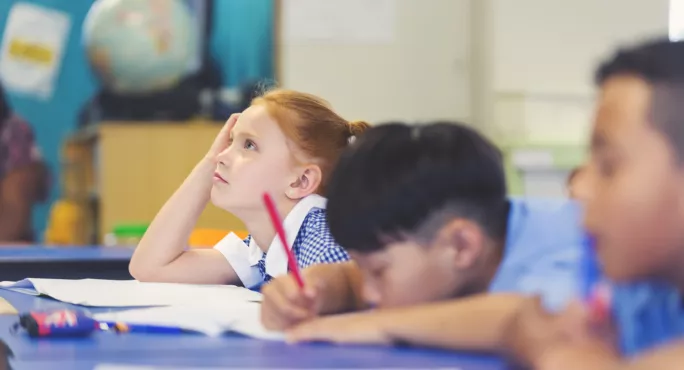‘Disappointing’ lack of new Covid catch-up funding
Share
‘Disappointing’ lack of new Covid catch-up funding
No new funding will be available next year to provide catch-up support for pupils whose education has been disrupted as a result of Covid-19, a think tank has warned.
The Education Policy Institute (EPI) says “it is disappointing” that today’s government spending review does not outline any additional funding and says the adverse effects of Covid-19 on pupils’ education “are likely to continue long after next year”.
Documents published by the Treasury this afternoon show that £1.4 billion is available to schools this year for pupils’ catch-up and free school meals, but only £400 million is available next year.
It is unclear how exactly the £400 million breaks down, but the EPI says part of it includes catch-up funding for this year - due to the overlapping of financial and academic years.
And some of it is intended for the Holiday Activities and Food programme, which is for feeding disadvantaged children during the school holidays.
Exclusive: Catch-up tutors for only 17% of FSM pupils
Investigation: DfE silent on missing £143 million tutor cash
Background: £1 billion ‘Covid catch-up plan’ unveiled
Natalie Perera, executive director of the EPI, said: “It is disappointing that no additional funding is available to continue to provide catch-up support for pupils who have had their education disrupted as a result of the pandemic.
Coronavirus: Disadvantaged pupils ‘need extra support’
“The most disadvantaged pupils, in particular, who often do not have adequate resources at home, such as laptops, and who will have lost the most learning time, will continue to need additional support at school.
“The adverse effects of Covid-19 on pupils’ education is likely to continue long after next year.”
While the EPI also welcomed the government’s commitment to increasing the schools budget by £2.2 billion, it urged ministers “to take a closer look” at how that funding is distributed
Ms Perera added: “Our analysis shows that under the government’s current funding plans, schools serving more affluent pupils are likely to see higher increases to their funding than schools serving more disadvantaged pupils. This is despite the fact that the gap in attainment between disadvantaged pupils and their peers is already over 18 months by the end of secondary school, and is growing.”
The Treasury has been contacted for comment.




